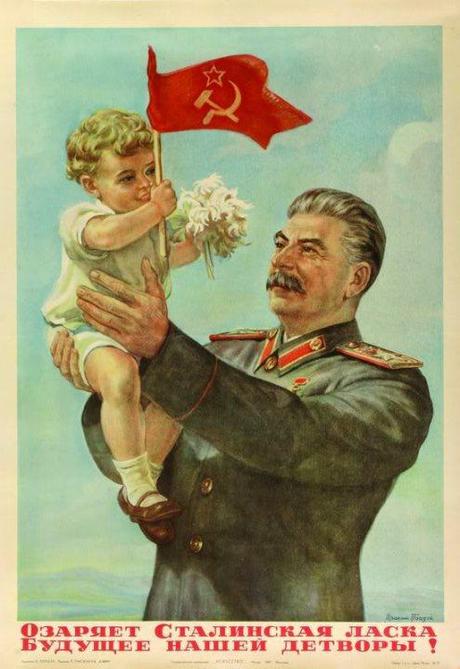
This has to be one of the best Persephones I’ve read in a very long time. In the 1930s, Eugenia Ginzburg was a prominent young member of the Communist intelligentsia, entirely committed to the party and its vision for Russia. She lived in the small city of Kazan, had risen to the position of head of the department of Leninist history at the city’s university, edited a communist newspaper and was married to the city’s mayor. She had an idyllic life, surrounded by friends and colleagues who shared her beliefs and utterly satisfied in her work and in her young family. However, in 1934, everything began to change. The assassination of Kirov, a prominent member of the party, led to Stalin instigating what would become known as the Great Purge, ridding the Party of any member who could potentially pose a threat, though the vast majority of those imprisoned or murdered were entirely innocent of any crime. Elvov, a colleague of Ginzburg’s at the university, was accused of leading a counter-revolutionary group and arrested. For three years life became difficult for Ginzburg as she came under suspicion and found herself regularly questioned and accused of being a part of Elvov’s fictitious counter-revolutionary group. The nonsensical nature of her crime, which was in failing to notice that Elvov was a counter-revolutionary, had Ginzburg convinced that the trouble was all a misunderstanding and would soon blow over. Her naive belief in the Communist Party and its leaders made it impossible for her to realize what was really going on behind the scenes, but when she was eventually expelled from the party, Ginzburg began to understand that her life was in danger. In 1937, she was arrested and sentenced to ten years’ imprisonment. She had not had a chance to say goodbye to her family before being arrested; she would never see her husband, parents or son again.
Ginzburg spent the first two years of her imprisonment in solitary confinement, though she was enormously lucky to have a cellmate through necessity, as Stalin’s obsessive purging of anyone who could potentially be a threat had led to major overcrowding in prisons. Conditions were primitive and Ginzburg and her cellmate were kept strictly separate from their fellow inmates, though this did not prevent them from communicating with one another. Through a tapping alphabet, the prisoners managed to pass news and gradually understand how serious the situation had become. Senior and well known officials were amongst those in the cells, and at night, the screaming of prisoners being tortured could clearly be heard. Practically starved, forced to live in airless, damp conditions, with only the occasional treat of a book and a daily solitary walk around the yard to look forward to, Ginzburg and her fellow inmates lived in hope that soon the madness would end and they would be released. They were treated with kindness by some wardens, but mostly with cruelty, and were regularly interrogated by officials who tried to make them incriminate themselves in all manner of absurd, trumped up crimes. Despite the horror of her situation, Ginzburg tried to remain positive and even began to appreciate the benefit of the smallness of cell life; the chance to think, to study novels closely, to appreciate the small moments of unexpected pleasures, made life somehow more immediate and treasured. Even so, the fear of further punishment and even death was always on the horizon, and when the two years of solitary confinement were up, Ginzburg had no idea what would be waiting for her as she embarked on the next stage of her imprisonment.
This is such a powerful and gripping account of the sheer horror and pain of losing your freedom and all control over your life, and of how strong people can be under the most awful of circumstances. Ginzburg and her fellow prisoners showed such bravery and tenacity in the face of their long sentences and uncertain futures, and took enormous risks to help one another survive their ordeal. Rather than falling apart, their imprisonment made them more resilient and determined, refusing to allow themselves to become broken by the treatment they received. Despite this, however, I was surprised that so many of the prisoners remained loyal to their party and to Stalin, unable or perhaps unwilling to acknowledge that he was directly responsible for their imprisonment, and naively believing that ‘if Stalin knew’ what was happening, he would put a stop to it. Ginzburg herself admits that at the time, she did not associate Stalin with her situation, and did not blame him for it. It was a challenge for me to understand this mindset, and also for me to understand how Stalin was allowed to get away with treating so many hundreds of thousands – even millions – of his own people like this. I was absolutely infuriated by the end, perplexed as to how, as with Nazi Germany, this horror was not stopped by other countries. How could thousands of people disappear and the world not have noticed? Why do so few people still not know about the atrocities that were committed by these 20th century dictators, and why do we still allow dictators who are decimating their citizens in nations all over the world today to get away with their crimes? Eugenia Ginzburg’s incredibly moving and unflinchingly honest memoir should be required reading by every schoolchild. Its revelation of the evil humans are capable of inflicting upon one another, as well as how lucky we are to have our freedom, are two lessons all of us should fully learn before we become adults. Ginzburg’s retelling of her experiences deeply affected me, and left me determined to find out more about this period of history. Don’t let this one pass you by; it’s truly compelling reading.
